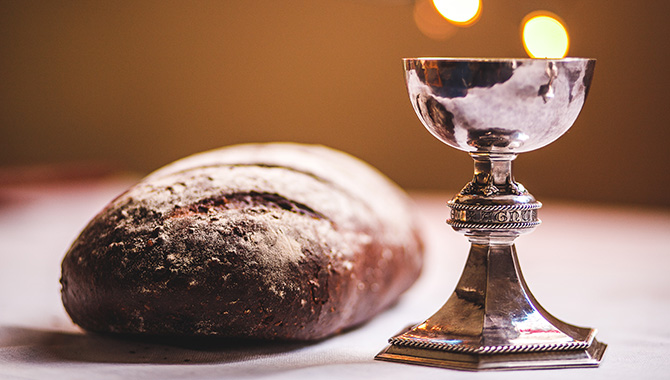My grace is sufficient for you. ~ 2 Corinthians 12:9
Many years ago, when I was sitting in a pew of a United Methodist Church, I heard the minister say, “United Methodists believe in the primacy of God’s Grace.” I had a vague notion of Grace. We said grace before meals. Mom and Dad talked about a grace period when paying their monthly bills. We sang “Amazing Grace” in church. And someone, probably a Sunday school teacher, said Grace was God’s unconditional love for all of us.
Yet, to this day, I still struggle to understand grace and to live in grace. How does the church embody or not embody the Grace of God?
When Jennifer and I first got married, we lived in a small town nestled in a green valley with a river running through it, very much like Mancos. The mountains rose from the valley floor and surrounded the town like a warm shawl. We attended a small white-clapboard United Methodist Church with a bell tower and lofty green trees providing shade, color, and peace. We knew everyone by their first names, and they knew us.
Before Advent, Wade and I would go cut a tree in the forest for the church. One year the tree was so tall that it scratched the new paint on the ceiling. We heard the grumbling. The next year, Wade and I got a “Charlie Brown” tree that was not big and strong enough to hold all the Christmas ornaments. “Why did you get a sick tree?” a few people asked. “It looked lonely,” Wade and I said.
During the Christmas season, Darrel would throw some hay bales on his flatbed trailer. Kids, parents, and the elderly would jump on board and Darrel would pull us around town as we sang Christmas carols. Afterword, we ate chili and drank hot cider in the church basement. All was well. For the most part, we had a Norman Rockwell faith.
Once, a young family with five children fell far behind on their house payments, and they were going to lose their home. Our new, young idealistic pastor, fresh out of divinity school, made a few calls to parishioners to ask for financial support for the family. In short order, our treasurer wrote a check to the mortgage company to bring the family current on their loan.
All was well until the next week when one of our church members who gave to the cause saw the family eating Big Macs and Happy Meals at McDonalds. “Why are they eating at McDonalds? They cannot afford that.” “Maybe they just wanted to treat their kids to a simple meal.” “They can’t do that.” “Pastor, did you sit down and go over a budget with them?” “They’re taking advantage of us.” “They were just eating at McDonalds.” “Weren’t our gifts free? Unconditional?” “No.” “Yes.” “This is Grace,” our pastor said.
Yes, grace is transformative, and it can be messy. Philip Yancey in What’s So Amazing About Grace writes, “Grace is God’s best gift to the world, a spiritual nova in our midst exerting a force stronger than vengeance, stronger than racism, stronger than hate. Sadly, to a world desperate for this grace the church sometimes presents one more form of ungrace.”
“Like grace notes in music, the state of grace proves fleeting,” says Yancey. Grace flies in the face of our sense of fairness, rightness, and responsibility. Quite often, we struggle with God’s Grace. Do you know who you are eating with Jesus? Why are you forgiving them Jesus? It’s not fair. “They” need to earn their keep. The early bird gets the worm. There is no such thing as a free lunch.
Years ago, I heard a Fred Craddock story that I will paraphrase. He was serving a small country church that had one hundred dollars in a “Grace Fund” that the pastor could use at his discretion. The church elders told Craddock he could give the money to anyone who is in need that is not the result of “laziness, drunkenness, or poor management.” Retelling the story years later, Craddock said, “As far as I know they still have that money.”
Yancey says, “Grace comes from outside, as a gift not an achievement. How easily it vanishes from our dog-eat-dog, survival of the fittest, look out for number one world. Grace comes free of charge to people who do not deserve it and I am one of those people.”
Do we see ourselves as recipients of amazing grace or do we believe we have earned everything? How do we respond to grace freely given? Do responsibilities come with grace? We should struggle with the questions as we nourish a culture of grace within our church.
That young family still has their home, and the gift continues to grow.
May we freely receive the gifts of grace as we struggle to embody grace.
Blessings and peace,
Craig

